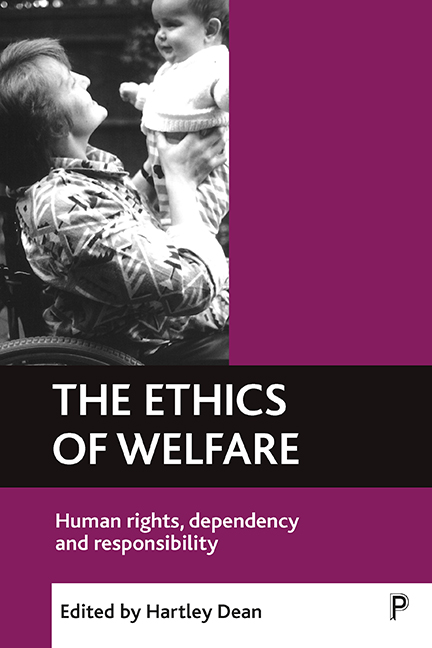three - Responsibility and welfare: in search of moral sensibility
Published online by Cambridge University Press: 20 January 2022
Summary
In 1997, Britain’s New Labour government promised “a modern welfare state based on rights and duties going together” (Blair, 1997, p 4). One of the striking features of New Labour’s ‘third way’ discourse is that it moralises without making recourse to a moral sensibility. Theirs is a discourse that makes judgements about action without needing to provide ethical grounds for preferring one course of action to another. This moral reasoning fits easily with a social philosophy where responsibility has more to do with calculating the risks and benefits of providing for welfare than with any sense of solidarity for the stranger (Bauman, 1993; Fevre, 2000). New Labour takes up responsibility as part of a communitarian discourse offering both a critique of liberalism and, ostensibly, a vocabulary commensurate with ethical socialism (Driver and Martell, 1998). Responsibility is supposed to articulate the social web of relationships that bind communities together and to voice a critique of liberal individualism that holds out the possibility of social cooperation. However, without a moral sensibility articulating reasons for people to come together and cooperate – as opposed to reinforcing the ways that people do in fact come together – New Labour’s discourse begins to look empty of any ethical socialist conceptions.
To help illustrate my argument, this chapter first reconstructs and analyses the discourses employed by New Labour in a series of press releases dating from the end of its first term of office. I reconstruct these discourses because of their special status as news stories written to be retold by the press and broadcasting media to (potentially) everybody (Jacobs, 1999). What we find in these discourses are four different constructions of the citizen, each requiring different kinds of information and services; but uncovering the sense of responsibility implied in these discourses means using a theoretical framework sensitive to social constructions of responsibility. For this reason, the second part of the chapter applies Dean’s (2002) taxonomy of discourses of responsibility to map the repertoires New Labour takes up. We shall see that New Labour’s press release writers draw principally on discourses of duty and obligation – and on occasions a discourse of obedience (see also Chapter One of this book). Their discourse largely excludes an ethical understanding of responsibility.
- Type
- Chapter
- Information
- The Ethics of WelfareHuman Rights, Dependency and Responsibility, pp. 49 - 66Publisher: Bristol University PressPrint publication year: 2004



